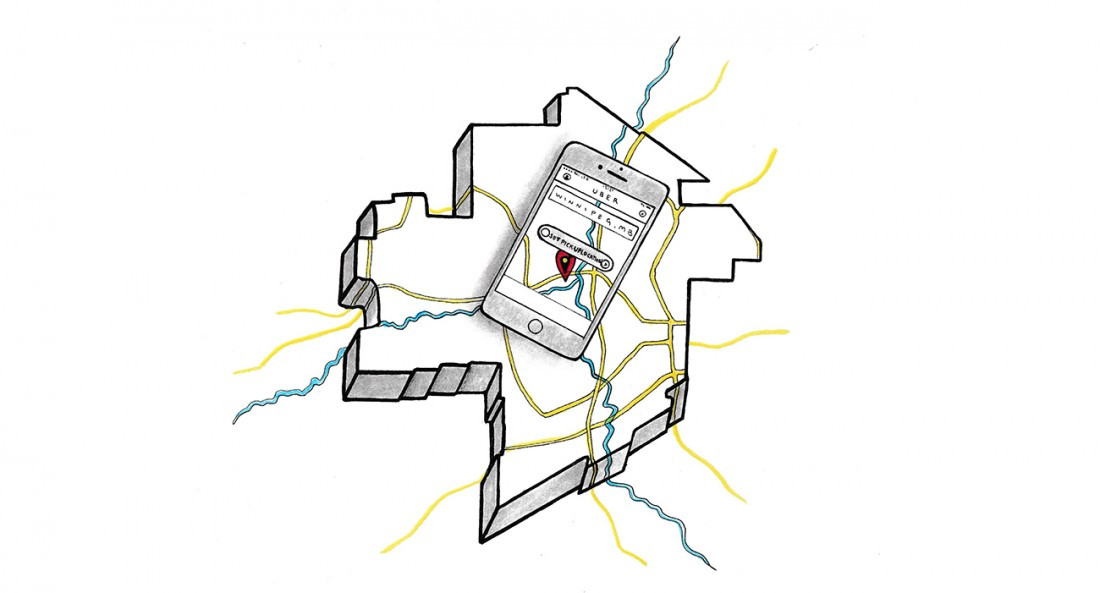Uber to enter Winnipeg market
Will compete with taxis, Winnipeg Transit and TappCar
Transportation has been a relevant issue in Winnipeg well beyond the past decade. The Uniter has covered this topic in depth, as it remains an issue of great importance for all Winnipeggers, especially students. Our coverage has focused extensively on safety, affordability and efficiency related to buses, taxis and ride-hailing services.
Clearly, this sector is continuously evolving. Earlier this month, Uber, a multinational ride-hailing company, announced it will come to Winnipeg later this spring. This comes after years of attempts by Uber to enter this market.
While similar ride-hailing services like TappCar and ReRyde already operate in Winnipeg, Uber’s advantage is “the value of their brand,” according to Dr. David Duval, associate professor in the University of Winnipeg’s Department of Business and Administration and a transportation expert.
“I do not regard them as particularly disruptive, but instead they have found a way to leverage technology to provide services more competitively and efficiently,” he says in an email to The Uniter.
Uber’s international success, however, has not gone without its fair share of controversy, ranging from driver compensation debates to sexual harassment allegations. Nevertheless, the San Francisco-based company already operates in numerous Canadian cities, including Vancouver, Calgary, Regina, Toronto, Ottawa and Montreal.
Coun. Jeff Browaty (North Kildonan), who has been advocating for Uber to come to Winnipeg, thinks this move has numerous benefits.
“It’s an internationally recognized brand,” he says, adding that Uber is “almost one of those basic services people expect wherever they are.”
Browaty believes there is a demand for Uber in Winnipeg but also notes that it is unclear whether it will have an impact on Winnipeg Transit ridership.
“In some places, it does have a detrimental impact on overall transit ridership. I do see both sides to it,” he says.
Duval agrees that Uber’s impact on the transportation sector in Winnipeg is hard to predict.
“We do not yet know how much penetration Uber will have in the Winnipeg market, and we don’t yet know what the uptake will be within the city,” he says.
“I suspect, however, that it will be reasonable at least at first.”
Part of the significance of Uber entering the Winnipeg market is that “it shows they are willing to operate in a jurisdiction where there is a public insurance model,” because “previously, their model has been to operate in jurisdictions where private insurance is available,” Duval says.
Here, “MPI must be the primary insurer, but my understanding is that additional insurance must be purchased by Uber as required by the City of Winnipeg as part of the conditions of obtaining a license,” he says.
It is unclear whether or not the COVID-19 pandemic will affect Uber’s timeline.
“Everything is so up in the air right now that I wouldn’t even hazard much of a guess,” Browaty says.
In response to the current pandemic, Uber is not ceasing its current operations but is implementing measures such as increasing cleaning supplies for drivers and providing financial assistance for drivers diagnosed with COVID-19.
Published in Volume 74, Number 24 of The Uniter (April 2, 2020)







